ACM MemberNet Europe
March 2022
CONTENTS AT A GLANCE:
- ACM, Open Access, and cOAlition S
A Conversation with Johan Rooryk and Julie Williamson on the work of cOAlition S to publish publicly-funded research Open Access immediately without embargo - Informatics for All – A Progress Report
Andrew McGettrick reports on the efforts of Informatics for All to develop an Informatics Reference Framework for Europe - ACM Europe Technology Policy Committee Update
Chris Hankin provides an update on the Europe Technology Committee's responses consultations conducted by the European Commission - 2021 ACM Fellows and Distinguished Members
Congratulations to the 12 European members who were named ACM Fellows and 10 members who became ACM Distinguished Members in 2021 - Upcoming In-person and Virtual Conferences
Connect with colleagues and the latest research results at in-person and virtual conferences happening across Europe this spring - Opportunity to Join ACM Europe RAISE Working Teams
ACM Europe RAISE is dedicated to improving the visibility of European computing research and European researchers within ACM - ACM Europe Council
The ACM Europe Council aims to increase the level and visibility of ACM activities across Europe
ACM, Open Access, and cOAlition S
A Conversation with Johan Rooryk and Julie Williamson
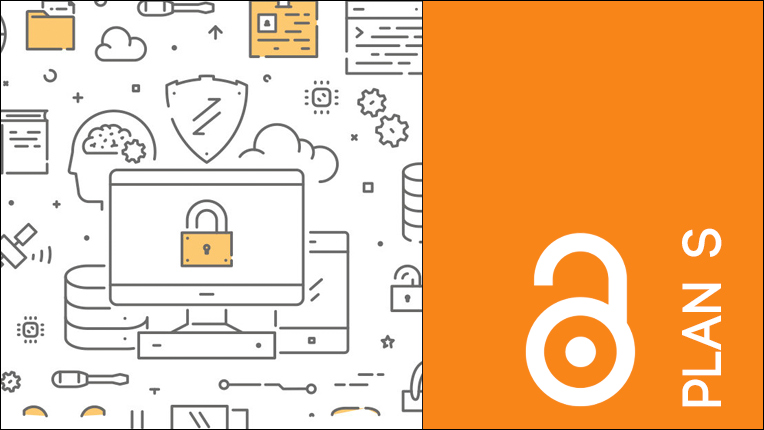 cOAlition S is an initiative to make full and immediate Open Access to research publications a reality. cOAlition S funders (a group of national research funders, European and international organisations and charitable foundations) have agreed to implement the 10 principles of Plan S in a coordinated way.
cOAlition S is an initiative to make full and immediate Open Access to research publications a reality. cOAlition S funders (a group of national research funders, European and international organisations and charitable foundations) have agreed to implement the 10 principles of Plan S in a coordinated way.
Julie Williamson, Senior Lecturer at University of Glasgow and Member-at-large of the ACM Europe Council, spoke with Johan Rooryk, Professor of French Linguistics at Leiden University, Executive Director and cOAlition S and a champion for open access research in Europe, about cOAlition S.
Julie: What is the overall goal and ambition of cOAlition S?
Johan: The ambition of cOAlition S can be stated in one sentence. We want all peer reviewed publications funded by cOAlition S funders to be published Open Access immediately without embargo under a CC-BY license.
Julie: ACM authors can self-archive their work, but this isn’t exactly the same as CC-BY. How does publishing with Creative Commons licences, specifically CC-BY, change authors’ practises and what are the main benefits?
Johan: The main benefit of CC-BY is that the author no longer has to ask for permission to reuse parts of their article in other work. Copyright transfer agreements are complex, they're different for every publisher, and they typically hand over all rights in the publication to the publisher. For every publisher, you have a different set of rules and a different set of ways of asking for permissions. They can grant permission or refuse it. It can take weeks or even months to get it.
CC-BY is a big change from copyright transfer, but the benefits for the authors are quite important. The fact that authors no longer need to ask for permission and keep the rights to their own work is very significant. The second benefit is that they can share it in a repository from the day it is published: many people who otherwise would not have access to the paper because it is behind a paywall, for example in lower and middle income countries, can have access to it. So the potential audience for the paper is much larger than it was before.
Julie: What can cOAlition S do for researchers interested in open access but who aren’t funded by cOAlition S funders?
Johan: Somebody who is not funded by a cOAlition S funder can still benefit from our policies, by using the rights retention strategy. But I think new Diamond Open Access journals can also be funded by institutions or by society. Diamond Open Access means no fee for authors, no fee for readers. The Directory of Open Access Journals (DOAJ) lists 11.500 of them. There is bound to be many that are suitable for unfunded authors.
Julie: One of the most challenging topics in Open Access is article processing charges (APCs). What are your thoughts on APCs and their role in open access?
Johan: I personally don't like APCs. I think they are a necessary and hopefull temporary evil, but there's many problems with APCs. The main problem is that they currently are author-facing. Basically, the author gets an invoice for the paper they publish and has to pay for it whatever way they can. That is something that we are against as cOAlition S, and we are committed to paying APCs for our funded authors. But once they are not author-facing then of course they typically will be paid by an institution. So either the university or the institute or the funder pays, and then it's important to have some insight into what services that we get for an APC. We currently do not have that information. APCs can vary by a factor 10, and publishers do not tell us what is included in that globally fixed price.
That's why we have developed our price and service transparency framework. We ask publishers to give us a breakdown of the prices and services they deliver for an APC or read and publish agreement. We are currently building a Journal Comparison Services tool that will be accessible to funders and librarians so they can compare prices across journals and publishers. Publishers will not have access to each other’s information, because we have been told there is a competition issue if they do. At some point, we will only be in partnership with publishers who provide us with a price transparency breakdown.
The second problem with APCs is that it doesn't contribute to equity at all. We do not have a policy about that yet, because it's such a complicated problem. But, an APC basically sets a unique price for the whole world. It's one of the very few services or products that costs the same the world over. I'm thinking of flight tickets, Coca Cola, aspirin, haircuts, hotels: you know they don't cost the same in New York or in Glasgow or in Delhi. In the same way, an APC shouldn't cost the same in the entire world, but be flexible as a function of a country’s Purchasing Power Parity and the size and revenue of a particular institution.
I'm not against the APC per se. I would be in favour of a transparent APC if it were completely non author-facing and calculated in a globally equitable way. We are not looking for a free ride and obviously publishers perform services. Somebody has to pay the bill. Even in Diamond Open Access publishing, somebody pays for the bill.
It's just that you want that price to be calibrated as a function of what people can pay and be commensurate with the services rendered. That may mean that some people will have to pay more as a function of their capacity of pay, and some people will have to pay less. Publication has costs associated with it, but we should also think more creatively about how those costs are being met by different consumers and who is asking for those services.
Julie: Transparency is important, ACM has started sharing detailed financial reports on publication finances. I really like this new level of transparency. To finish, what do you think are the kind of biggest challenges facing Open Access initiatives?
Johan: The transition to move to Open Access in an orderly fashion is one of the biggest challenges. There's so many different models out there, so many different publishers. You have the big publishers, you have small publishers. You have publishers with enormous profit margins, publishers with small profit margins, society publishers, departmental publishers. So the diversity of the industry makes it very hard to organise this transition in an orderly fashion.
Also, the infrastructure is not quite there yet. For instance, the infrastructure to allow for these payments to be automated and to be flowing around the world is only just getting started with OA Switchboard. There is also a lack of industry standards. It's not like there's no industry standards, but they're certainly not all being observed by everyone in the same in the same way. I think we need more standards and also think we need more equitability in the payment system. How do we make for an academic publishing system where everybody contributes as a function of their means, and where publish the best possible results while being reviewed in the best possible way?
Informatics for All – A Progress Report
by Andrew McGettrick, University of Strathclyde, UK
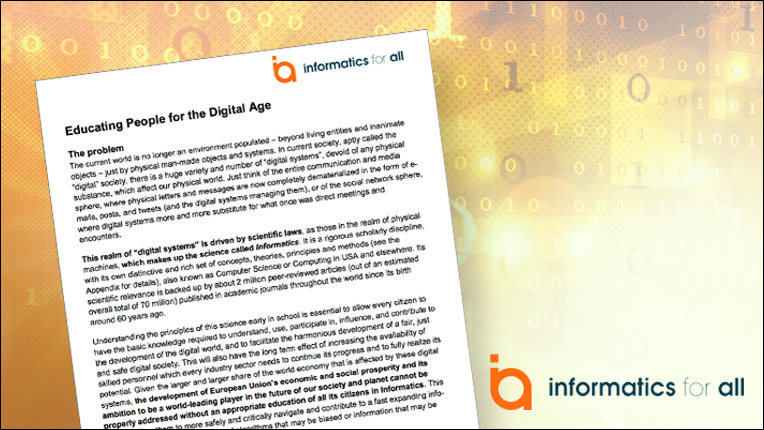 The Informatics for All (Inf4All) Steering Committee, chaired by Wendy Hall, currently comprises four member organisations: ACM Europe; CEPIS, the Council of European Professional Informatics Societies; IFIP Technical Committee 3 on Education; and Informatics Europe. The agenda for meetings typically includes seeking to provide support to the European Commission in terms of advancing informatics education, monitoring and being engaged in developments involving PISA as OECD prepares for its next assessment of science education, and supporting ITiCSE, the Innovation and Technology in Computer Science Education conference.
The Informatics for All (Inf4All) Steering Committee, chaired by Wendy Hall, currently comprises four member organisations: ACM Europe; CEPIS, the Council of European Professional Informatics Societies; IFIP Technical Committee 3 on Education; and Informatics Europe. The agenda for meetings typically includes seeking to provide support to the European Commission in terms of advancing informatics education, monitoring and being engaged in developments involving PISA as OECD prepares for its next assessment of science education, and supporting ITiCSE, the Innovation and Technology in Computer Science Education conference.
One matter that has dominated the thinking of the Inf4All Steering Committee at recent meetings is the production of an Informatics Reference Framework (formerly an Informatics Curriculum Framework).
Informatics Reference Framework
Education is a devolved matter within Europe; all countries / educational regions have responsibility for their own curricula, demonstrating great diversity across Europe. To support the advancement of informatics education in Europe, a taskforce of eight was set up by Inf4All to produce an Informatics Reference Framework; there were two representatives from each of the four member organisations. This framework should be viewed as being at a higher level than any curriculum document, but it should offer guidance and challenge to those designing curricula.
The taskforce:
- Michael Caspersen (Chair and from Informatics Europe)
- Branislav Rovan, Ira Diethelm (CEPIS)
- Don Passey, Mary Webb (IFIP TC3)
- Enrico Nardelli (Informatics Europe)
- Judith Gal-Ezer, Andrew McGettrick (ACM Europe)
An interim report, entitled ‘Informatics Curriculum Framework for School’ and dated June 2021, was produced. The taskforce was anxious that their views would meet widespread support from the informatics community and accordingly it was felt that the interim report should be subject to review from the community.
Following support from the Steering Committee, the interim report was circulated to interested parties for review with responses required by 15 September 2021. The review group included member bodies associated with Informatics Europe, IFIP TC3 and CEPIS as well as attendees at earlier workshops and relevant groups within ACM.
Further work is being undertaken to produce two additional documents:
- A related document addressing specialisations within informatics, e.g., data science, artificial intelligence, virtual and augmented reality.
- A document addressing the use of the informatics reference framework in creating detailed informatics curricula.
Within the coming days the intention is to widen the circulation for review and resume interactions with the EU, after which the report will be made public.
ACM Europe Technology Policy Committee Update
by Chris Hankin, ACM Europe Technology Policy Committee Chair
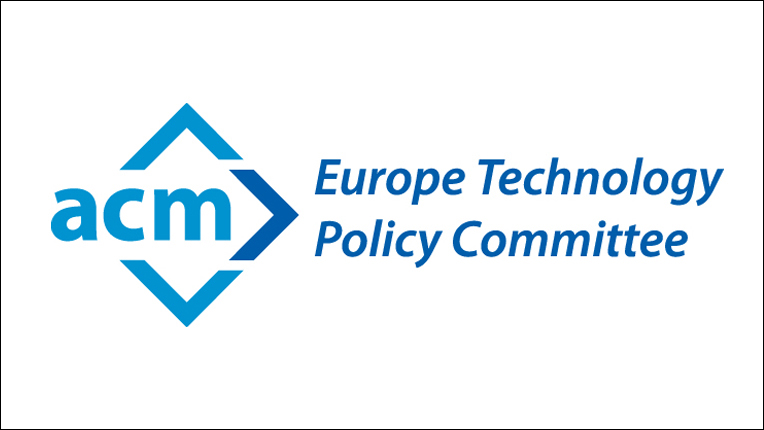 ACM’s Europe Technology Policy Committee (EuropeTPC) promotes dialogue and the exchange of ideas on technology and computing policy issues with the European Commission and other governmental bodies in Europe, and the informatics and computing communities.
ACM’s Europe Technology Policy Committee (EuropeTPC) promotes dialogue and the exchange of ideas on technology and computing policy issues with the European Commission and other governmental bodies in Europe, and the informatics and computing communities.
Over recent months EuropeTPC has responded to a number of consultations conducted by the European Commission and provided comments on proposals:
- The Health Data Space Consultation.
- Comments on the Proposed AI Regulation from the European Council and Parliament.
- Comments on the European Commission’s proposed Digital Principles.
- Comments on the proposal on establishing a decision on the 2030 Policy Programme Path to the Digital Decade from the European Commission.
- The AI and Product Liability Consultation.
ACM’s Technology Policy Council has introduced a series of short TechBriefs for policy makers. The first, Computing and Climate Change, was written by Bran Knowles who is a member of EuropeTPC; it was released to coincide with the COP26 meeting in Glasgow. TechBriefs are planned to have a quarterly frequency, and Europe TPC will be contributing on a regular basis.
In addition to responding to consultations, commenting on proposals from European governmental organisations and contributing to TechBriefs, EuropeTPC also produces longer policy white papers; we are currently working on a paper on autonomous driving. This work is carried out through our working groups (we currently have groups on AI, Autonomous Systems, Climate Change and Smart Cities).
If you would like to get involved with the Committee, please email the chair with a brief CV and statement of areas of interest.
2021 ACM Fellows and Distinguished Members
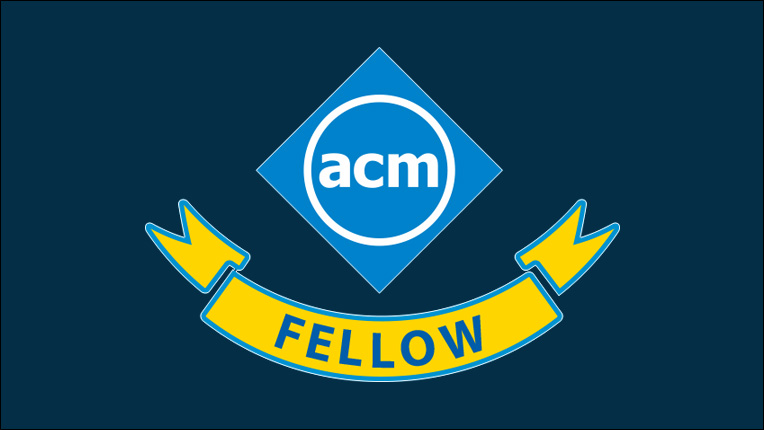 The ACM Europe Council is proud to announce that 12 European members were named ACM Fellows and 10 members became ACM Distinguished Members in 2021. We are delighted to see that more European researchers receive the recognition that they deserve for their professional achievements. We extend our sincere congratulations to them all.
The ACM Europe Council is proud to announce that 12 European members were named ACM Fellows and 10 members became ACM Distinguished Members in 2021. We are delighted to see that more European researchers receive the recognition that they deserve for their professional achievements. We extend our sincere congratulations to them all.
2021 ACM Fellows from Europe
- Daniel Cohen-Or, Tel Aviv University, Israel
- Lieven Eeckhout, Ghent University, Belgium
- Amos Fiat, Tel Aviv University, Israel
- Judith Gal-Ezer, Open University of Israel
- Paola Inverardi, University of L'Aquila, Italy
- Thomas Lengauer, Max-Planck Socity, Germany
- Dale Miller, Inria Saclay, France
- Bernhard Nebel, Albert-Ludwigs Universitat, Freiburg, Germany
- Joel Ouaknine, Max Planck Institute for Software Systems, Germany
- Pierangela Samarati, Universite degli Studi di Milano, Italy
- Bernt Schiele, MPI for Informatics / Saarland University, Germany
- Luca Trevisan, Bocconi University, Italy
2021 ACM Distinguished Members from Europe
- Rosa Badia, Barcelona Supercomputing Center (BSC), Spain
- Cristian Cadar, Imperial College London, United Kingdom
- Rolf Drechsler, University of Bremen, Germany
- Xiaoming Fu, University of Goettingen, Germany
- Jerry Chun-Wei Lin, Western Norway University of Applied Sciences, Norway
- Max Mühlhäuser, Techniscal University of Darmstadt, Germany
- Felix Naumann, Hasso Plattner Institute, University of Potsdam, Germany
- Knut Risvik, Microsoft Corporation, Norway
- Sriram Subramanian, University College London, United Kingdom
- m.c. schraefel, University of Southampton, United Kingdom
Upcoming In-person and Virtual Conferences
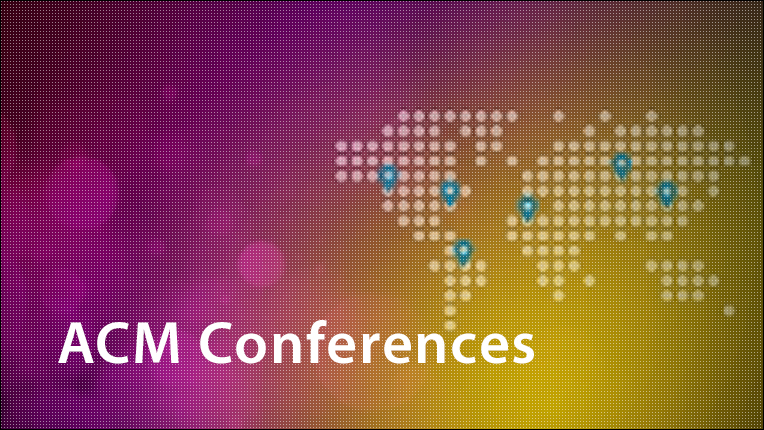 In-person and virtual conferences are happening across Europe this spring. Connect with colleagues and the latest research results at these ACM sponsored events.
In-person and virtual conferences are happening across Europe this spring. Connect with colleagues and the latest research results at these ACM sponsored events.
CHIIR '22: ACM SIGIR Conference on Human Information Interaction and Retrieval
Regensburg, Germany
Mar 14 - Mar 18, 2022
DATE '22: Design, Automation and Test in Europe
Antwerp, Belgium
Mar 14 - Mar 23, 2022
IUI '22: 27th International Conference on Intelligent User Interfaces
Helsinki, Finland
Mar 22 - Mar 25, 2022
For more ACM Sponsored and In-Cooperation events around the world, see all upcoming events on the ACM events calendar.
Opportunity to Join ACM Europe RAISE Working Teams
The mission of ACM Europe RAISE is to achieve greater visibility of European computing research and to ensure a higher degree of recognition for the achievements of European researchers within the scope of ACM.
The goals of ACM Europe RAISE are to:
- Increase visibility of European research excellence.
- Promote Europe-centric events.
- Work with the ACM management and collaborate with the SIGs to make Europe more visible to ACM and ACM more visible to Europe.
- Increase awareness about existing opportunities for recognition of the work of European researchers through the ACM programmes and activities and promote the participation of European researchers in such activities.
- Create new opportunities for recognition of the work of European researchers.
There is a working team for each of these five goals aimed at achieving the goal. The working teams lead on various relevant activities. Members are expected to assist in the planning, organization, and dissemination of such activities. For example, ACM Europe RAISE organized the webinar "Getting Recognized by ACM Awards and Honors," which informed Europeans about how to prepare successful nominations for ACM Awards and Advanced Member Grades. The event was well received with more than 350 registrations and more than 170 participants.
ACM Europe RAISE is currently recruiting members for its five working teams, and welcomes expressions of interest from all European members, including early-career professionals. If you would like to get involved with any of the working teams, please email the chair, Panagiota Fatourou, with a brief CV and statement of interest.
ACM Europe Council
The ACM Europe Council aims to increase the level and visibility of ACM activities across Europe. The Council is comprised of European computer scientists committed to fostering the visibility and relevance of ACM in Europe and is focused on a wide range of European ACM activities, from high-quality ACM conferences in Europe, to expanding ACM chapters, to encouraging greater participation of Europeans in all dimensions of ACM.
- Chair - Valerie Issarny
- Vice Chair - Rosa Badia
- Secretary/Treasurer - Bran Knowles
- Past Chair - Panagiota Fatourou
- Members
- Anastasia Ailamaki
- Oliver Grau
- Rute Sofia
- Harald Storrle
- Julie Williamson
- Informatics Europe (IE) Liaison - Enrico Nardelli
- European Research Consortium for Informatics and Mathematics (ERCIM) Liaison - Bjorn Levin
ACM MemberNet Europe covers news of people and activities of the computing community in Europe.
Are you interested in contributing to the ACM Europe Newsletter?
We are seeking contributions to this quarterly newsletter from members of the computing community in Europe. If there is a topic you would like to see addressed or a topic you would be interested in writing about, please email the newsletter editor, Julie Williamson, at [email protected]..